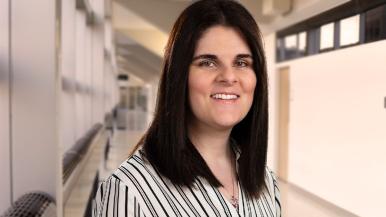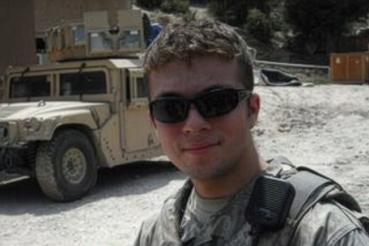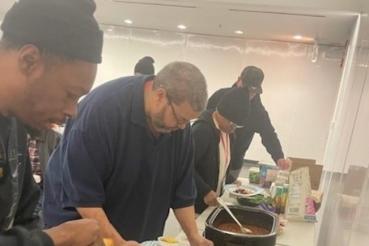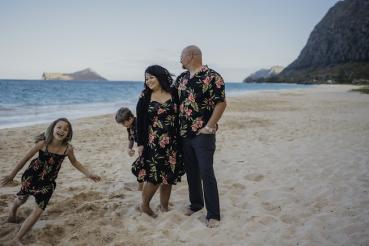Ashton Kroner was 7 years old the first time she told her mom she planned to join the Marines when she grew up. This conviction only grew stronger throughout her adolescence, and Kroner enlisted right after she finished high school.
After tours in Iraq and Afghanistan, Kroner returned home and continued working with the military as a recruiter. That’s when she realized that although she enjoyed serving her country and being a Marine, she was struggling with post-traumatic stress disorder after returning to civilian life. With support from her family, she sought help and now, as the Rush Road Home Program outreach manager, she gets to help other veterans seek treatment and start healing from trauma they experienced.
'A part of history'
Still a teenager when she enlisted, Kroner quickly embraced an opportunity to train as a Lioness in Iraq. This unique program recruited female Marines to serve with all-male infantry units to perform important responsibilities, including searching and forming relationships with local women. Due to cultural customs, male service members are not allowed to interact with Iraqi women. Kroner and her partner were charged with searching women and children who may be wearing explosives.
“It was a really unique experience, and it’s something I look back on often,” Kroner said. “Not a lot of people get to experience a different culture like that, let alone participate in the Lioness program, which had only been around for a few years. I was getting to be a part of history.”
Throughout this time, they built trust with communities by providing resources like toiletries and water. Working with women and children as a Lioness was a highlight for Kroner, but the danger that came with it was also a source of stress.
Kroner returned home and married her husband before deploying for a tour in Afghanistan. Although she spent more time during this tour on base, it was a more hostile and dangerous assignment. It also was a harder transition to come home afterwards, since she hadn’t been interacting with civilians or experiencing normal day-to-day activities.
After returning stateside, Kroner continued her service as a military recruiter. She also was taking on a new role as a stepmother to her daughter, and later giving birth to a son. Throughout this time of significant change, Kroner’s husband began to notice that she had PTSD symptoms and suggested that she seek help.
Post-traumatic stress disorder is a chronic health condition that can occur after someone experiences or witnesses a traumatic event. Symptoms of PTSD include depression, anxiety, irritability, unwanted memories or flashbacks, avoiding related thoughts or feelings, difficulty sleeping and many more. PTSD is particularly common among veterans.
“For me I was focusing so much on my career that I was letting my family life lack a little bit,” Kroner explained. “I didn’t want to let anybody know that anything was wrong. At that time, if you reached out for help, then you were considered weak and you were letting your brothers and sisters down.”
Shifting perspectives
Resistant to ask for help, it wasn’t until Kroner saw that her PTSD was affecting her daughter negatively that she realized she needed to get treatment. Her family began going to therapy as individuals and together so they could begin the healing process. Therapy was an incredible resource in allowing Kroner to understand her own trauma and develop healthy mechanisms for dealing with it.
Kroner’s therapist used cognitive processing therapy to help her understand how and why certain things triggered her, as well as tools for managing her PTSD symptoms. This form of treatment was a major turning point for Kroner. It allowed her to better cope with civilian life, which in turn improved her relationships with her loved ones.
When Kroner decided to leave her position as a military recruiter, she went back to school for her bachelor’s degree and began working for a medical device company. It wasn’t long before a military colleague reached out and told her about an open position at the Road Home Program at Rush. Kroner was immediately excited about the opportunity, especially because she would be helping other veterans.
“Invisible wounds are just as important to treat as physical wounds after deployment,” Kroner said.
Kroner has found her calling doing outreach and engagement at the Road Home Program. The Road Home Program aims to help veterans and their families deal with the challenges that come with returning to civilian life after service. The devoted team at Road Home Program offers a variety of programs, services and resources, along with fostering relationships with other organizations that aim to help veterans and their families.
If you would like to learn more about the Road Home Program, please visit roadhomeprogram.org. If you would like to contact the program about patient resources and presentations, please email team@roadhomeprogram.org.




